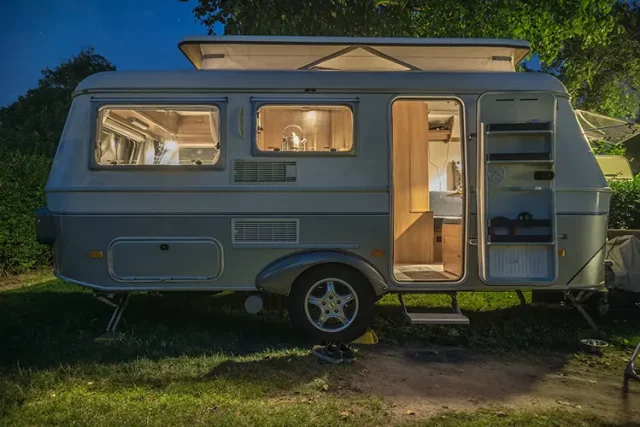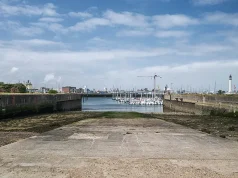
Mobile homes, also known as manufactured homes, offer an affordable and flexible living solution. As with any other type of home, it’s crucial to ensure that your dwelling is protected from potential risks and damages.
In the Garden State, navigating mobile home insurance in New Jersey can be particularly unique due to the state’s coastal location and varied climate conditions.
This comprehensive guide provides an in-depth look into mobile home insurance, focusing on the ins and outs of coverage, cost factors, and shopping for policie. Understanding these key aspects is paramount to securing your mobile home adequately and ensuring peace of mind as you enjoy your home.
What is Mobile Home Insurance?
Mobile home insurance is a type of homeowner’s insurance specifically designed for mobile homes. It helps protect your home and its contents from various damages and losses.
It differs from standard home insurance primarily due to the unique risks associated with mobile homes, like their vulnerability to wind damage or transportation-related damages.
Understanding Mobile Home Insurance Coverage
Mobile home insurance coverage can be quite similar to a typical homeowner’s insurance policy, but with certain adjustments to cater to the unique needs and risks associated with mobile homes. Here’s a breakdown of what you can typically expect:
- Personal Property Coverage: This part of the policy covers the contents of your mobile home, such as furniture, appliances, clothing, and electronics in the event of theft, vandalism, fire, or other covered perils. It’s important to have an accurate inventory of your personal property and its value when considering how much coverage you need.
- Physical Damage Coverage: This part of the policy covers the actual mobile home structure and any attached structures, like a deck or porch. Coverage typically includes damage from a variety of perils such as fire, lightning, wind, hail, theft, and vandalism. It’s worth noting that while transport-related damage can be a unique risk for mobile homes, not all policies cover this type of damage, so it’s important to ask your insurer.
- Liability Coverage: This coverage can protect you if someone gets injured on your property or if you or your family members accidentally cause damage to others’ property. It can cover legal expenses, medical bills, or repair costs up to your policy’s limit.
- Additional Living Expenses (ALE) Coverage: If your mobile home becomes uninhabitable due to a covered loss, this coverage can help pay for additional costs you wouldn’t normally have, like hotel bills or restaurant meals.
Keep in mind that every policy can be a bit different, so you should read the policy terms and conditions carefully.
Factors Affecting Mobile Home Insurance Costs
Mobile home insurance premiums can be influenced by a variety of factors, including:
- Location: The geographical location of your mobile home significantly affects the cost of your insurance. If your home is in an area prone to natural disasters such as hurricanes, floods, or wildfires, you may face higher premiums. Also, areas with high crime rates may lead to increased insurance costs due to the higher risk of theft or vandalism.
- Age and Condition of the Mobile Home: Older mobile homes or those in poor condition may attract higher insurance premiums. This is because they are more susceptible to damage, and the cost of repairing or replacing them may be higher.
- Coverage Level: The more comprehensive your coverage is, the more it will cost. For example, a policy that includes personal property coverage, liability coverage, and additional living expense coverage will likely cost more than a policy that only covers physical damage.
- Deductible: The deductible is the amount you’re required to pay out of pocket before your insurance coverage kicks in. If you choose a higher deductible, your premiums will generally be lower, but you’ll need to pay more upfront in the event of a claim.
- Claims History: If you have a history of filing insurance claims, insurers may consider you to be a higher risk and charge you higher premiums.
- Security Measures: If your mobile home has security measures in place, such as an alarm system, deadbolt locks, smoke detectors, or is tied down securely, you might qualify for lower insurance premiums due to reduced risk.
- Credit Score: Some insurance companies use credit scores as part of their risk assessment. A low credit score may lead to higher premiums.
Each of these factors is taken into consideration by the insurance company when calculating your premiums. It’s important to talk with your insurer or agent to understand exactly how your premium is being calculated and if there are any discounts you may be eligible for to lower your cost.
How to Shop for Mobile Home Insurance
Choosing the right insurance provider requires some homework. Look for insurers with strong reputations, excellent customer service, and financial stability.
Get quotes from multiple insurers to compare costs and coverage. Make sure to read all policy documents carefully to understand what is covered and what isn’t.
Tips to Lower Your Mobile Home Insurance Premiums
There are several ways to potentially lower your insurance premiums. Improving the safety of your home, such as installing smoke detectors or securing the home to a permanent foundation, can reduce your risk level and thus, your premiums.
Bundling policies, such as your auto and mobile home insurance, can often provide discounts. Also, many insurance companies offer discounts to seniors, military personnel, or those who haven’t made a claim in several years.
Filing a Claim: What to Expect
When you need to file a claim, notify your insurance company as soon as possible. Provide all necessary details about the incident, and cooperate with the insurance adjuster.
Keep records of all communications and repairs made. It’s also wise to understand potential pitfalls, such as under-insuring your home, which can result in claim denial or lower payouts.
Mobile Home Insurance and Natural Disasters
Standard mobile home insurance policies may not cover natural disasters like floods or earthquakes.
If your home is in an area prone to these types of events, consider additional coverage options. Disaster preparedness, including having adequate insurance coverage, is vital in these scenarios.
Conclusion
Securing the right insurance for your mobile home is an important aspect of owning this type of property.
Whether you’re shopping for a new policy or reviewing your existing coverage, understanding the ins and outs of mobile home insurance can help you make the best choices for your circumstances.





